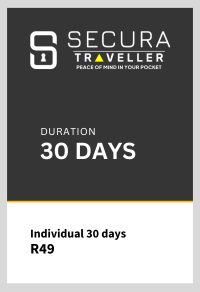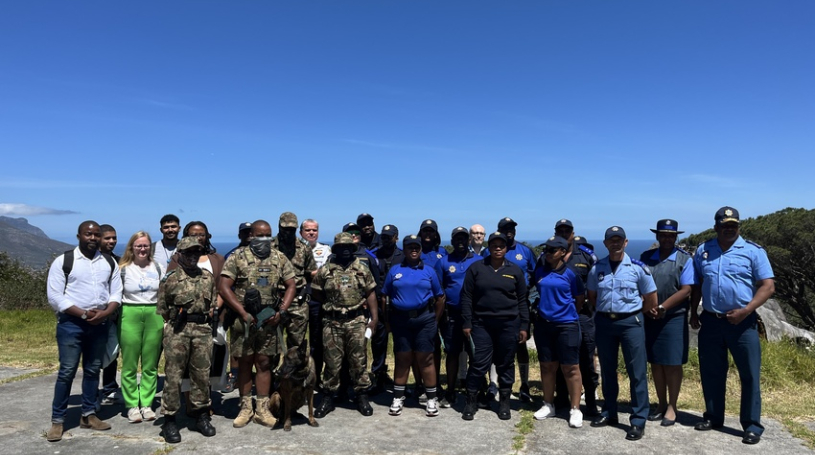Western Cape Ready for Bumper Tourism Season with Strong Focus on Visitor Wellbeing
Press Release, 3 November 2025
The Western Cape government, alongside its key partners in safety and tourism, declared the province ready to welcome an influx of local and international visitors for the 2025/26 summer season. At a joint media briefing held last week, leaders from provincial and city governments, SAPS, SANParks, CapeNature and tourism bodies presented a united front, detailing comprehensive plans to ensure a safe and memorable experience for all.
The announcement comes as the province anticipates a significant surge in arrivals. Projections indicate an 11% year-on-year increase in international airline seat capacity for the upcoming season, building on a 5% growth in international passenger traffic and a 7% rise in domestic traffic year-to-date. The cruise sector is also poised for another robust season, with more than 70 vessel calls already confirmed, promising substantial economic benefits.
Chief Director for Economic Sector Support at the Department of Economic Development and Tourism (DEDAT), Ilse van Schalkwyk, emphasised that the foundation of this growth is a deep-seated commitment to visitor wellbeing. "The Western Cape is a destination of choice, and its success is built on a promise of safety and world-class hospitality. Our collaborative efforts have yielded tangible results, with reported crime incidents involving international tourists dropping to below 2% in recent years. This demonstrates the effectiveness of our targeted strategies and partnerships."
While acknowledging that perceptions of safety can lag behind the improved reality on the ground, speakers at the briefing outlined the extensive measures in place. These include the deployment of a specialised Tourism and Visitor Safety Unit jointly funded by the Western Cape Government and the City of Cape Town, integrated operations in and around Table Mountain National Park, and visible policing at tourism hotspots. The collaborative approach brings together national, provincial, and municipal entities to ensure a coordinated response.
Officials also called upon visitors to play an active role in their own well-being by taking basic precautions. Tourists are encouraged to prepare appropriately for hikes in wilderness areas, swim only at beaches with lifeguards on duty, and maintain a safe and respectful distance from wildlife.
The collective message from the briefing was one of confidence and readiness. With robust plans in place and strong collaboration across all sectors, the Western Cape is prepared for a successful and prosperous tourism season, reinforcing its status as a premier global destination.
Tourism is a significant driver of economic growth in the Western Cape, generating approximately R28.6 billion in gross value added and supporting an estimated 257,987 direct jobs in the province in 2023. According to SA Tourism, in 2024, direct foreign spend by international visitors to the province amounted to R22.7 billion, while direct domestic spend reached a new high of R18.6 billion.
The Western Cape Government's Growth for Jobs (G4J) strategy aims to double the number of visitors to the province by 2035, targeting a R1 trillion, jobs-rich, inclusive, diverse, and res ilient provincial economy growing at 4% to 6% in real terms.
Key Visitor Safety Tips and Emergency Contacts
Visitor Safety Tips
- On the streets: Be alert to scams targeting tourists, including fake "permit" scams where individuals (sometimes posing as officials or police) claim you need a permit to walk, take photos, or conduct ordinary activities—no such permits are required. Never share your credit card details or PIN with anyone or enter them into unfamiliar devices. At ATMs, be cautious of "helpers" and card readers that may compromise your information; never allow anyone to distract you or handle your card. When using taxis or e-hailing services, always request rides through official apps such as Uber and confirm the vehicle before entering. At airports, use only formal taxi kiosks or pre-booked shuttle services through your accommodation. Do not accept rides from unaccredited touts.
- Mountain and Wilderness Safety: Be appropriately prepared for hiking by travelling in groups, using a qualified mountain guide when possible, and staying on marked paths. Exercise caution when using mobile navigation apps, as marked digital routes may not always be accurate or safe. Should you encounter difficulty, do not hesitate to call emergency services—rescue operations are free in South Africa.
- Beach Safety: Swim only at beaches where lifeguards are present, and opt for Blue Flag beaches whenever possible. Familiarise yourself and your group with rip currents and the appropriate response if caught in one. Families with young children can benefit from programmes such as the City of Cape Town’s Identikidz for added peace of mind.
- Wildlife Interactions: Always maintain a safe distance from wild animals to avoid risk of injury or disease. Since May 2024, rabies has become endemic in Cape Fur seals; seals are often encountered along Cape Town and the West Coast, so swimmers, surfers, and beachgoers should exercise caution. Importantly, no human rabies cases have been reported. Visitors booking guided snorkelling, diving or kayaking experiences should request a full safety and health briefing from their operator. Shark attacks are exceedingly rare; for safe swimming areas, consult Shark Spotters. Please note that summer is also snake season—hikers should remain vigilant.
- Driving and Road Conditions: Plan your journeys well in advance and be prepared for local driving and pedestrian habits by adopting a defensive driving approach. December and early January are peak holiday periods, with increased traffic, possible congestion, higher accident risk, and delays on major routes and coastal roads. When driving from or towards Cape Town International Aiport, keep to the N2 (use Exit 16).
- Weather Precautions: Minimum and maximum temperatures are expected to be above average during the spring and early summer. Be prepared for heatwaves, strong winds, and sudden weather changes throughout your visit. Stay hydrated, protect against sun exposure, and anticipate windy or rapidly shifting weather, especially in the summer months.
- Other general precautions: Public drinking is not allowed in South Africa (this includes beaches); the blood/alcohol legal limit is 0,05g per 100ml of blood (never drink and drive).
- General Emergency Services: 112 (toll-free from a mobile), 107 (from a landline for the Cape metro), 10177 (ambulance), 10111 (South African Police Service)
- City of Cape Town Emergency Services: 021 480 7700 (general emergencies via mobile phone)
- Table Mountain National Park Emergency: 086 110 6417
- Wilderness Search and Rescue (sea and mountain): 021 937 0300
- National Sea Rescue Institute: 087 094 9774
- Tourist Support Hotlines:
- Cape Town Tourism Band-Aid: 021 487 6552
- Western Cape Tourism Safety Support: 082 554 2010 (Cape Town & surrounds) & 082 972 2507 (Garden Route and surrounds)
Media Contact:
Kayla Davids
Big Ambitions
kayla@bigambitions.co.za
+27 71 891 7487






















